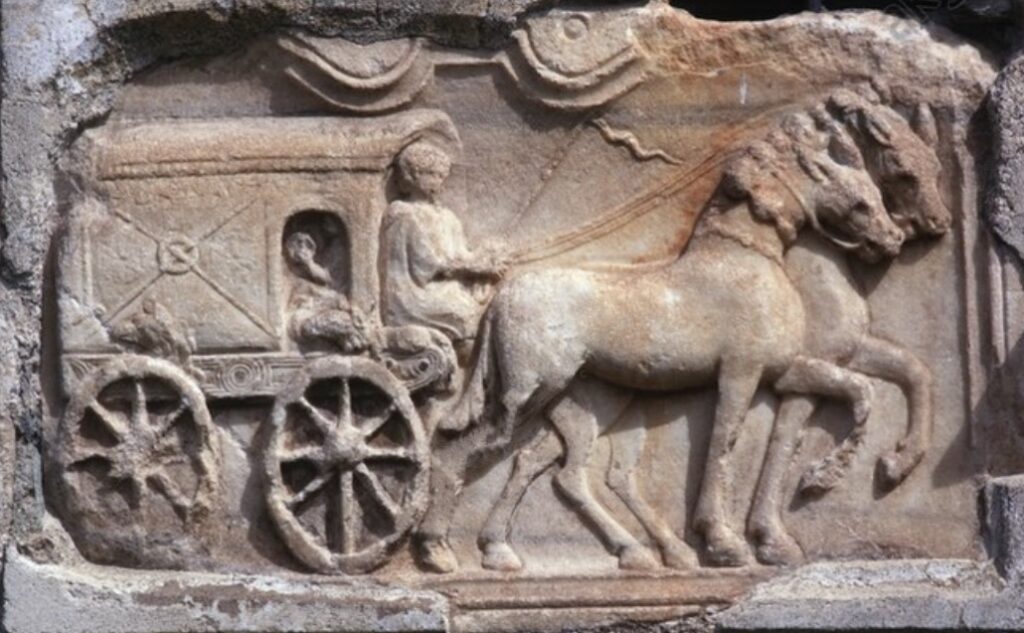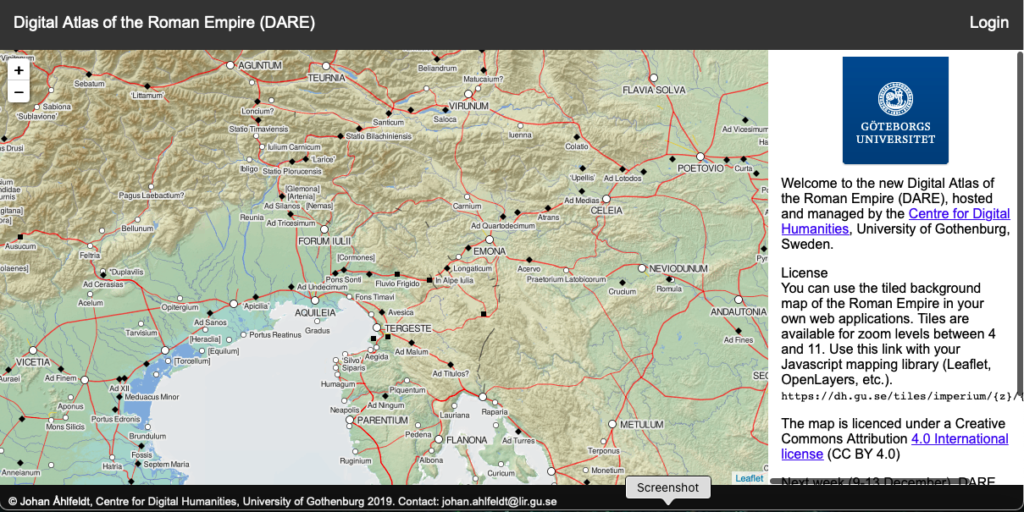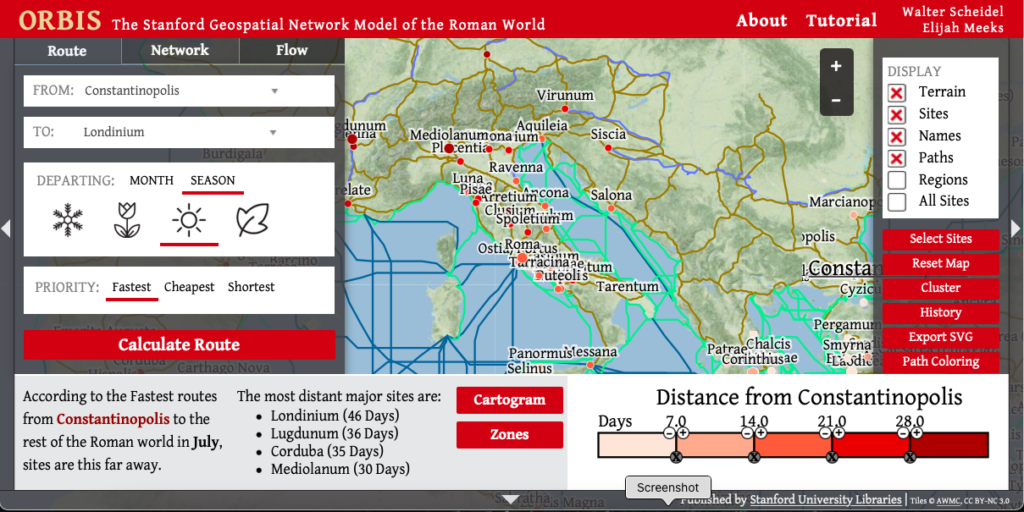Drafting my new Roma Nova story set in the fourth century is slow, glacially slow at times. I know Roma Nova, I know its ‘history’, but when you get down to the nitty gritty of writing in a time and place that’s completely alien, you need to check everything. And I mean everything.
Every book needs some research and my modern Roma Nova thrillers were no exception. But now I’m stepping back sixteen hundred years…
Let’s take transport as an example
For the physical geography, you can use Google Maps. (Other map/satellite software is available, as they say.) Discounting the built environment and modern transport infrastructure, you can look at hills, shorelines and valleys and get a feel for the landscape.
For Roman fiction writers, there’s a wonderful dynamic map called Digital Atlas of the Roman Empire hosted and managed by the Centre for Digital Humanities, University of Gothenburg, Sweden.
You can find names of settlements, their modern names, routes and status information. Brilliant! Did you know the modern town of Prosecco (hic!) was called Castellum Pincinum, had a metal works and was a minor port?
When you want to find out how long it takes to get from A to B, whether by walking, ship or ox-cart, there’s the ever reliable interactive ORBIS from Stanford University.
But what is it like to ride along roads at the back end of empire? Maintenance has become sporadic as revenues have diminished, military has localised and far fewer private citizens are will to put their hands in their togas for the required funds. And, of course, brigands are becoming bolder…
I know zilch about riding a horse. I went on one once, didn’t like it, fell off and vowed never to go near one again. Roman horses were smaller – I gleaned that from research – and it’s commonly known Romans didn’t use stirrups. I still can’t find any solid information about how you mounted a horse under those circumstances, especially civilian riders. Were mounting blocks common? Let me know if you know!
Horses also have to be rested, fed and watered on a regular basis. You can’t hammer a horse even when fleeing without it collapsing or at least becoming dehydrated and exhausted.
But I have a horsey friend who breeds horses and whose daughter is a prizewinning show jumper. She’s also and award-winning historical fiction writer so guess who I will send my manuscript to when it’s finished?
Travelling clothes are another one. According to Lionel Casson’s Travel in the Ancient World, women travellers on horseback wore more or less the same clothes as men, but longer so their legs were decently covered. I’ve put my new heroine Julia in breeches. Although the daughter of a prince, she’s a mountain girl. Towards the end of the fourth century, breeches/trousers /leggings were becoming a great deal more common and it was cold in ‘them thar hills’!
And when you’re on a very rural road or a high mountain route, how do you feed and accommodate yourself? Hopefully, there is a river nearby to replenish your leather water bottles and the occasionally amenable farmer from whom you can scrounge or pay for a night’s rest and supper. And what would you eat and in what quantities? Rural farming diet is a long way from nightingales’ tongues and spiced oysters of Rome and Naples.
But I love being back in the late Roman Empire as it’s a period when the bones and structure of classical Roman empire are still there, but as parts of it are crumbling away, new flesh is being put on those bones as Europe goes through a massive period of change. The ever increasing lack of records in this period doesn’t make the research any easier, but the challenge is part of the fun!
If you want to know more about how and where Roman roads were built, you might find this post interesting: On the Road to Rome.
Alison Morton is the author of Roma Nova thrillers – INCEPTIO, CARINA (novella), PERFIDITAS, SUCCESSIO, AURELIA, NEXUS (novella), INSURRECTIO and RETALIO, and ROMA NOVA EXTRA, a collection of short stories. Audiobooks are available for four of the series. Double Identity, a contemporary conspiracy, starts a new series of thrillers. Double Pursuit, the sequel, is now out!
Download ‘Welcome to Alison Morton’s Thriller Worlds’, a FREE eBook, as a thank you gift when you sign up to Alison’s monthly email newsletter. You’ll also be among the first to know about news and book progress before everybody else, and take part in giveaways.
















Oooh, looking forward to this book, Alison!
Thanks, Christine. It’s fascinating how much of core Roman ideas values and, of course, roads and shipping routes still existed, yet what gaps were emerging.
Wow Alison that is so useful for my research, thank you! I would be most interested in featuring you in my substack newsletter.